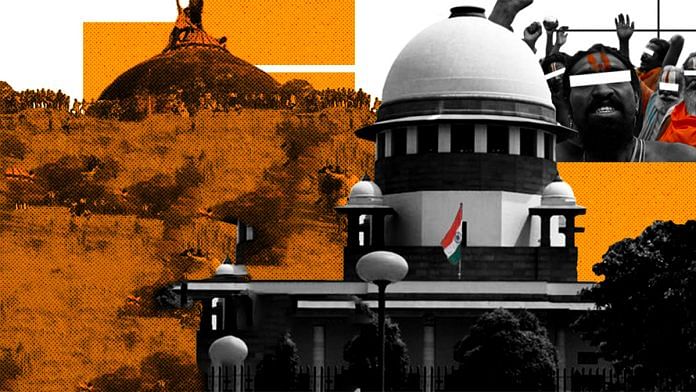New Delhi: The Supreme Court delivered a unanimous verdict Saturday and said a trust should be set up by the central government within three months to help build the Ram Mandir in Ayodhya. The Muslims should be given 5 acres of land elsewhere in Ayodhya to construct a mosque, it added.
A five-judge bench, headed by Chief justice of India Ranjan Gogoi, also indicated that the disputed site is for the Hindu parties.
Read the full judgment here:




In a layman’s eye, this judgement is not worthy of the respect we normally accord (or are expected to accord) to a Supreme Court judgement.
How did the court manage to…” The court upheld the belief of Hindus that Lord Ram was born at the disputed site in Ayodhya.” My father was born only 100 years ago, and not 5000 years ago. Yet, if I go to his village, who will be there from my grandfather’s time to tell me where that family lived when my father was born?
The SC..” also upheld that the mosque was neither abandoned nor seceded by the Muslims.”
Also,… “The fact that there lied a structure beneath the destroyed structure has been established by the ASI. ASI had not established whether temple was demolished to build the mosque.”
In the light of the above, I don’t know how the court could decide that the Central government should build a temple there. Just because the Muslim waqf board has not been able to prove its right over the land does not mean that a Muslim structure did not stand there. We all have seen the photos of a mosque standing there.
If this decision is taken in the interest of peace even if at the cost of Fairplay, then it is a welcome decision. Human lives are more precious than bricks.